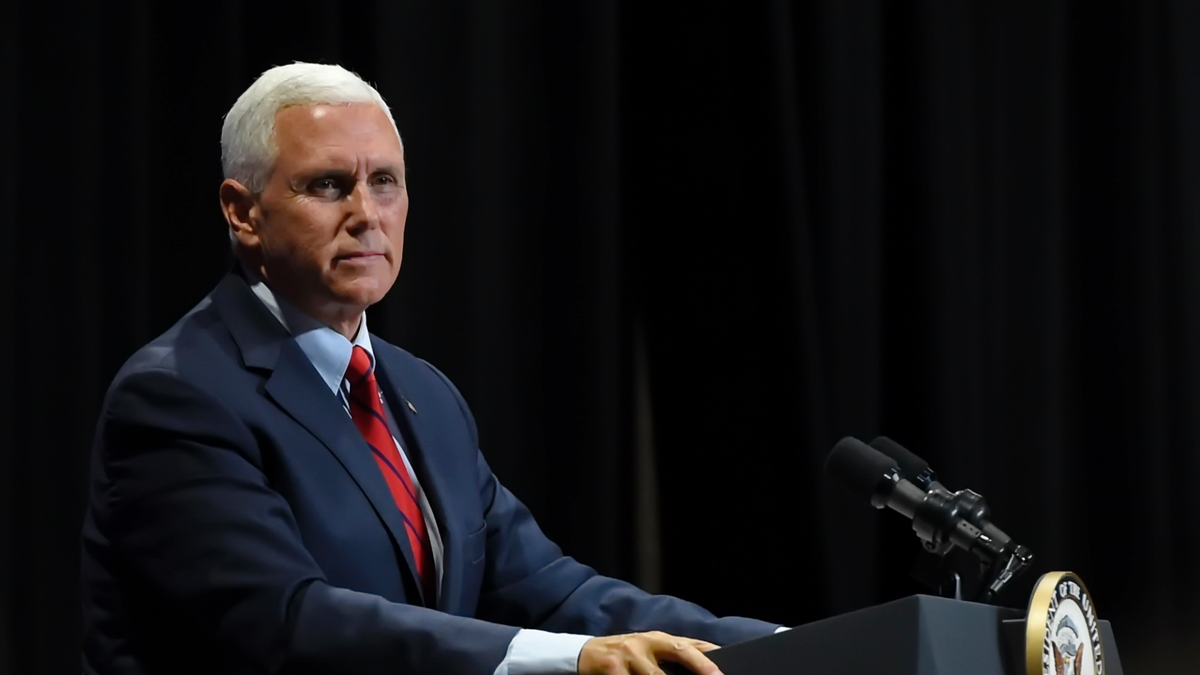
SAO PAULO – U.S. Vice President Mike Pence will visit Latin America's largest and most populous nation this week, but the focus of his trip will be the deteriorating humanitarian situation in neighboring Venezuela.
This will be the vice president's third trip to the region, and previous visits also emphasized efforts to isolate the socialist government of President Nicolas Maduro.
"The reason Pence is going can be summed up in one word: Venezuela," said Brian Winter, editor-in-chief of Americas Quarterly magazine. American officials "believe that Maduro is susceptible to pressure from the rest of the region, and they're just trying every tool in their toolbox to try to tighten the screws on Maduro."
The trip comes at a time when U.S.-Brazil relations are in a holding pattern, as is Brazil itself. The South American country is reeling from a colossal corruption scandal, struggling to recover from a deep recession and trying to look beyond the remaining months of President Michel Temer's lame duck administration ahead of October elections.
Temer, whom prosecutors have twice accused of corruption, is Brazil's most unpopular president in a generation, casting doubt on his administration's ability to act on anything decided with Pence. Pence will also be visiting at a moment when most Brazilians will be focused on the World Cup. On Wednesday, Brazil plays Serbia.
On his next stop, in Ecuador, Pence is also expected to press Venezuela concerns. The Andean nation has begun distancing itself from Maduro, but disappointed Washington when it abstained during a recent vote on a resolution that could trigger a process for suspending Venezuela from the Organization of American States. The vice president will also visit Guatemala to meet with those affected by a volcanic eruption and discuss aid efforts.
The United States has already leveled sanctions on Venezuela, but the Trump administration is hoping to persuade Brazil and other countries in the region to ramp up pressure on Maduro's government. Maduro won a second, six-year term in May in an election boycotted by the main opposition parties and broadly condemned as illegitimate by the U.S. and other foreign governments.
Venezuela, which sits atop the world's largest oil reserves, was once one of Latin America's wealthiest countries. But mismanagement and a drop in global oil prices have resulted in a deepening economic and political crisis. The country is experiencing critical shortages of food and medicine and more than 1 million Venezuelans have fled in recent years.
Brazil has received tens of thousands of those migrants, many of whom arrive at the border malnourished and with myriad health problems. Pence will visit a migrant facility in Manaus, the capital of the border state of Amazonas.
He is also expected to address trade with Temer after the U.S. recently imposed tariffs on Brazilian aluminum and quotas on its steel. While Brazil fought the restrictions, the matter has largely blown over.
"I just find hard to believe that any sort of substantive engagement or anything that makes the relationship closer in any way can be achieved with an administration that is as weak as Temer's is right now," said Monica de Bolle, a senior fellow at the Peterson Institute for International Economics. "There's nothing to be accomplished here, at all, apart from putting a good face on and saying, 'Oh the U.S. came and visited us,' and the U.S. will say, 'We went and visited Brazil.'"
___
Associated Press writer Gonzalo Solano in Quito, Ecuador, contributed to this report.
